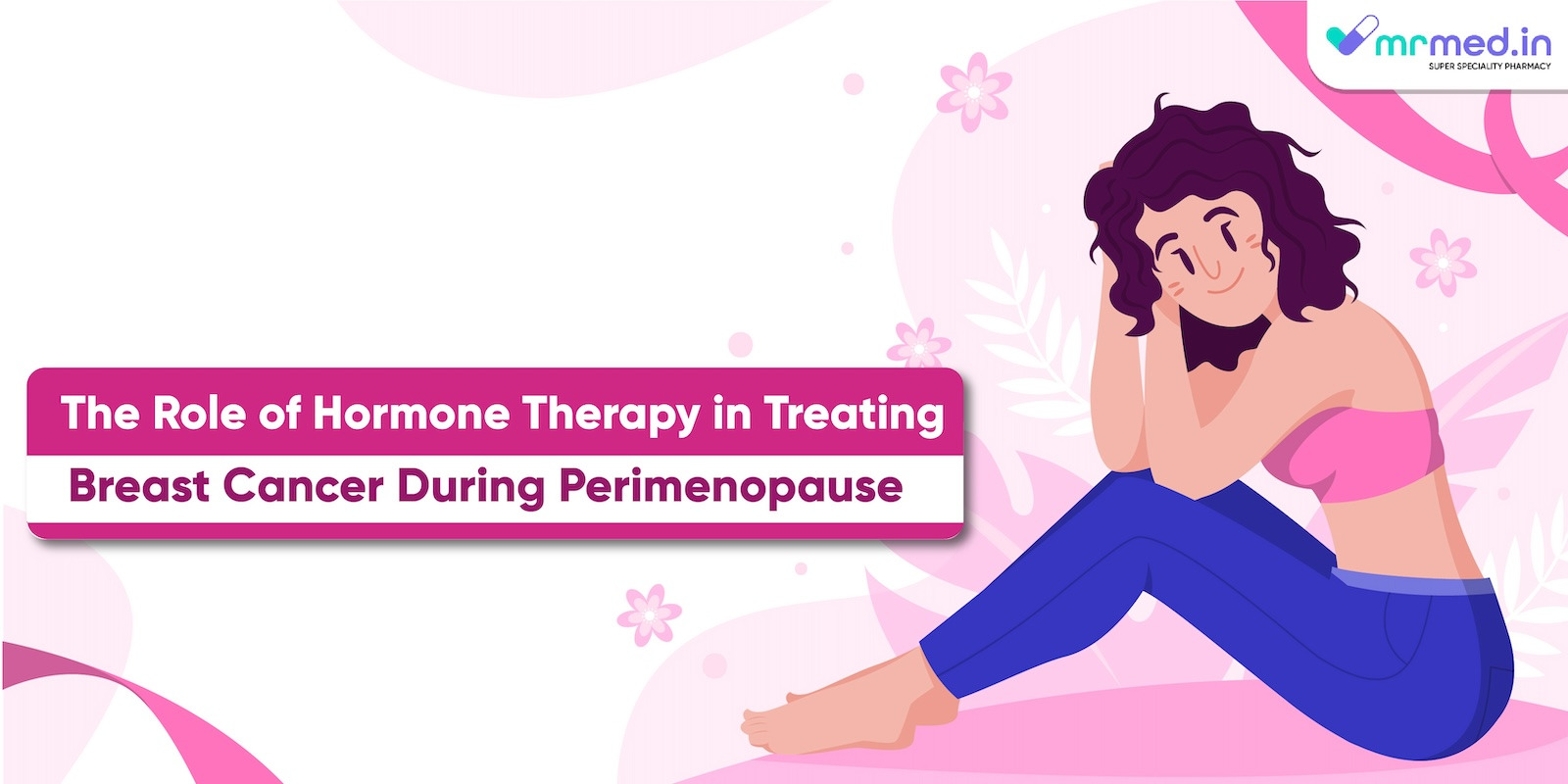Breast cancer treatment during perimenopause presents unique challenges due to hormonal fluctuations and changes in the body. However, hormone therapy offers a beacon of hope, playing a crucial role in managing breast cancer in this transitional phase. This blog explores the role of hormone therapy, its effectiveness, and considerations for women undergoing treatment during perimenopause, providing reassurance and hope.
What happens to your breasts during perimenopause?
Perimenopause is the transitional period leading up to menopause, characterised by hormonal changes, irregular menstrual cycles, and various physical and emotional symptoms. These hormonal fluctuations can influence the development and progression of breast cancer. Estrogen and progesterone levels, in particular, play a significant role in hormone-receptor-positive breast cancer.
What does hormone therapy do?
Hormone therapy for breast cancer involves using medications to block or lower the levels of hormones in the body that fuel the growth of cancer cells. This treatment is used mainly for hormone-receptor-positive breast cancer, which relies on estrogen and progesterone to grow. Lupride Depot 3.75mg Injection, containing Leuprolide Acetate, is one such medication used in hormone therapy.
What is the best type of hormone therapy?
- Selective Estrogen Receptor Modulators (SERMs): These medications, such as tamoxifen, block estrogen receptors on breast cancer cells, preventing estrogen from binding to them and promoting cancer growth.
- Aromatase Inhibitors: These medications, including anastrozole and letrozole, reduce the production of estrogen in postmenopausal women by inhibiting the enzyme aromatase, which converts androgens into estrogen.
What does hormone therapy do for perimenopause?
- Targeted Treatment: Hormone therapy specifically targets hormone-receptor-positive breast cancer cells, reducing the risk of cancer progression and recurrence.
- Effectiveness in Reducing Tumor Size: Hormone therapy can shrink tumours, making them easier to remove surgically or treat with other medicines.
- Minimal Impact on Quality of Life: Compared to chemotherapy, hormone therapy generally has fewer side effects and a lower impact on daily life, making it a preferred option for many women.
Can you do hormone therapy in perimenopause?
- Hormonal Fluctuations: Perimenopausal women experience significant hormonal changes that can affect the efficacy and side effects of hormone therapy. Close monitoring and adjustments to the treatment regimen may be necessary.
- Side Effects: Hormone therapy can cause side effects such as hot flashes, mood swings, vaginal dryness, and bone density loss. Managing these side effects is crucial for maintaining the patient's quality of life.
- Combination with Other Treatments: Hormone therapy is often used in combination with other treatments such as surgery, radiation, or chemotherapy. The treatment plan should be tailored to the individual’s specific condition and overall health.
How do we manage the side effects of HRT?
- Hot Flashes: Strategies to manage hot flashes include staying cool, dressing in layers, and using fans. Some medications and lifestyle changes, such as reducing caffeine and alcohol intake, can also help.
- Bone Health: To counteract bone density loss, patients should engage in weight-bearing exercises, consume a diet rich in calcium and vitamin D, and consider bone-strengthening medications if necessary.
- Emotional Well-being: Support groups, counselling, and stress-reduction techniques such as yoga and meditation can help manage mood swings and emotional stress.
What are the advancements of HRT?
Recent advancements in hormone therapy have improved its effectiveness and reduced side effects. Research continues to explore new medications and combinations that provide better outcomes for patients.
- Extended Hormone Therapy: Studies have shown that extending hormone therapy beyond the standard five years can further reduce the risk of breast cancer recurrence in some women.
- Targeted Therapies: Combining hormone therapy with targeted therapies, such as CDK4/6 inhibitors, has shown promise in enhancing treatment efficacy and overcoming resistance.
- Personalised Treatment: Advances in genetic testing and molecular profiling allow for more personalised hormone therapy plans tailored to the specific characteristics of the patient's cancer.
Hormone therapy plays a pivotal role in treating breast cancer during perimenopause. By understanding the unique challenges and benefits of hormone therapy in this transitional phase, patients and healthcare providers can work together, with the providers feeling empowered and integral, to develop effective treatment plans.




